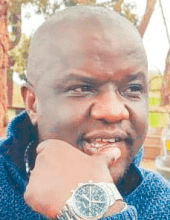Council moves to sanitise teaching profession
The Teachers Council of Malawi (TCM) has moved to bring sanity in the teaching profession by introducing registration and licensing of teachers in both public and private schools.
The move comes against a background of growing concerns that unqualified teachers have flooded the teaching profession, leading to compromised quality of education.
Under the new arrangement, practising early childhood development (ECD) caregivers are expected to register with K15 000 and pay the same as licence fee each year teachers in primary school will pay K20 000 and those in secondary school will pay K30 000. On the other hand, special education/guidance and counselling teachers will pay K20 000.

Student teachers will be paying a once-off K15 000 for the duration of their training and the above rates to get a card and a practising licence.
All these fees have to be paid by June 30 2024, according to TCM.
In a memo dated January 10 2024 to district commissioners, teacher training colleges (TTCs) both public and private, TCM acting registrar Grace Mphandamkoko said the move targets all students and serving teachers.
Reads the memo in part: “All institutions are, therefore, requested to inform all serving teachers to register with the council by June 30 2024.
“After this window, no teacher will be allowed to practice without registration. It is an offence for institutions to employ unregistered teachers and any institution that does not comply with the given guidelines will be taken to task.”
Mphandamkoko said institutions that have teachers without education qualifications should enrol them for post-graduate diplomas in teaching methodology, university certificate of education (UCE) or their equivalents by July 31 2024.
Edukans country director Limbani Nsapato said while the development will promote the quality of education, the time-frame is not feasible for almost 100 000 teachers to complete the exercise by June 30.
He said: “For private schools, the policy and law demands that they operate with provided regulations. We now have mushrooming of more private schools and if they employ unqualified teachers, the quality of education will be affected. The only challenge from the ministry and TCM capacity is to be able to monitor the situation.”
Educationist Steve Sharra said the majority of teachers do not know anything about the teachers council and its roles, as such, the y should have informed them about its existence.
He said: “Renewal of licences is being tied to continuous professional development attendance. Currently, there are no approved trainings for any of the cadres in the teaching profession. So, it is rather strange that this is coming first, before the training framework has been rolled out nationally.
“Secondly, the majority of caregivers are not formally employed and do not receive salaries. The government pays some of them a stipend of K20 000. Expecting these caregivers to be paying K15 000 every year is unrealistic. It will be quite a financial burden.”
Teachers Union of Malawi secretary general Charles Kumchenga said the move will among others, help to deal with ghost teachers.
Based on the 2023 Education Management Information System, the country has a combined 85 402 primary school teachers of whom 77 075 are in public and 8 327 in private schools.
At K20 000 per teacher, government is expected to raise K1.7 billion a year.
In secondary schools, there are 18 811 teachers and at K30 000 each, the council will raise K564.3 million per year.
Under Section 62, the Education Act provides that the council shall establish and maintain a register of teachers and a roll of licensed teachers and take part in all matters affecting the education and training of teachers.






One Comment